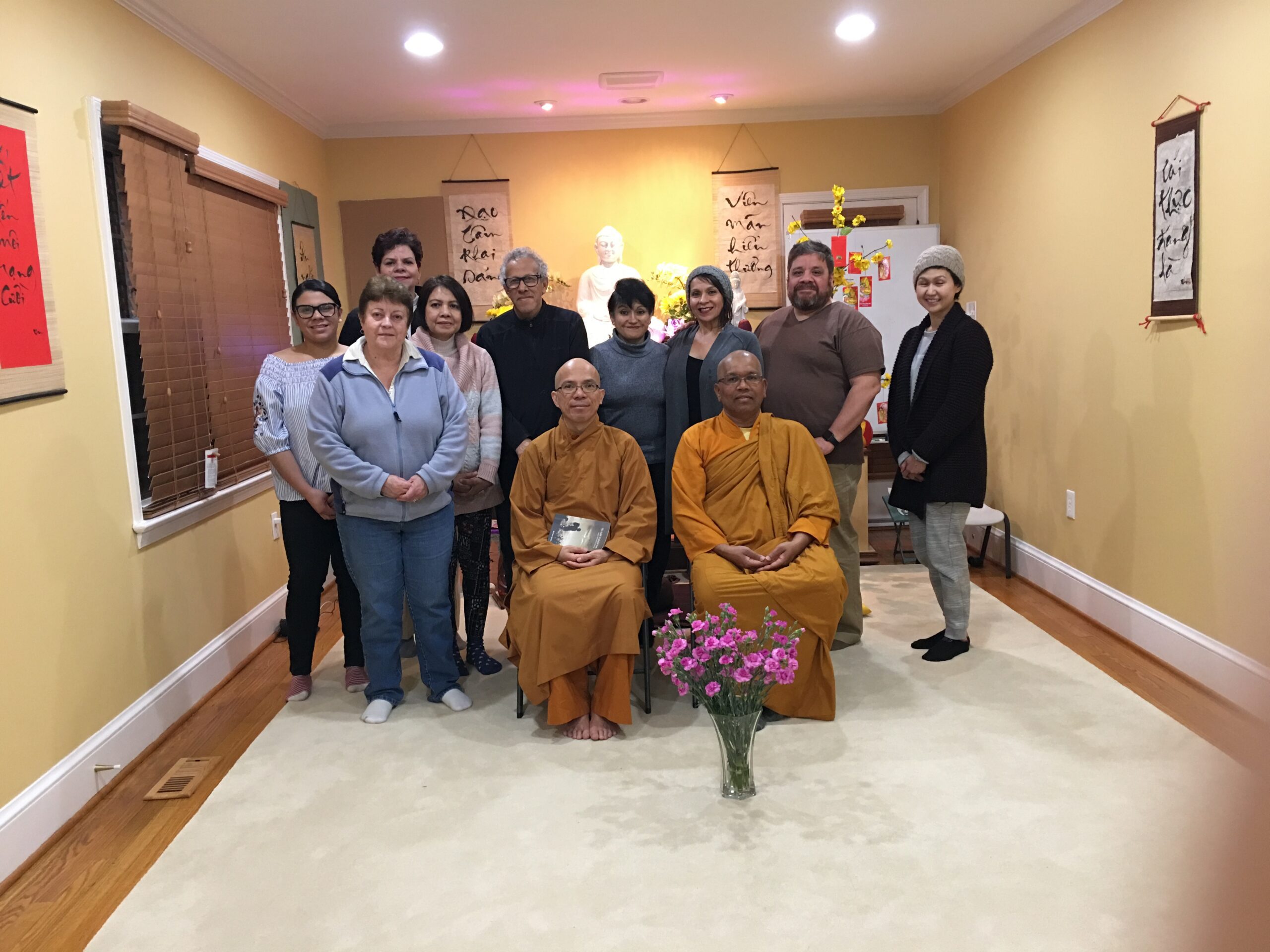Everything in the universe is always changing
and everything is dependent on everything else.
Hidden or manifest, happiness
is a matter of perspective.
Each individual in this world has a different way of life.
Some people have abundant material assets, with fine food and the best clothing, while others are dirt-poor. However, no matter how rich a person is, if he does not have a profound insight into immediate reality, his happiness may be incomplete. Conversely, a person may go through economic hardships, but, with a serene and clear mind, is still able to enjoy the wonders of life. Therefore, happiness or suffering depends upon each individual’s perspective.
Who in the world does not long for prosperity and happiness? Clearly, many people pursue this goal, for themselves and their loved ones, and expend all their resources and capabilities working in the hopes of a brighter, more prosperous future. But perhaps this way of thinking is really unsatisfactory, because if we keep searching for happiness in the future, we unwittingly overlook the beauty and the joy of the present moment. For example, family members as well as other positive factors contribute to our happiness, but we do not appreciate and enjoy their presence until they are gone, when it will be too late for regrets. This unfeeling attitude toward our loved ones and obliviousness to current reality can be a great shortcoming and disadvantage for whomever lives without dwelling in the present moment.
Usually, we worry about the next task before even completing the first one. We cannot keep a peaceful mind during dinnertime because we only want to finish the meal soon enough to solve our various problems. With such a busy mind and apprehensive attitude, many people are unable to fully enjoy a happy life.
Certainly, everybody has to work for a living. However, those who have insight into many problems can feel happy while working. This requires each person to look inward and contact his own experiences. And then there is the person who might expect great happiness if he can live with his loved one. However, once his wish comes true, new affliction and suffering will arise. Their dream is fabricated by the self that dwells in delusion, while the truth is quite different. Therefore, happiness depends on each individual’s perception, rather than on external circumstances or objective conditions.
A happy individual is, basically, one who has a clear and free mind. His mind is not bound by what happened in the past, nor bothered by expectation of something in the future. If our mind is trapped by these two unreal tendencies, our life will be insecure and miserable.
For this reason, the Buddha taught:
“Do not go after the past,
Nor lose yourself in the future.
For the past no longer exists,
And the future is not yet here.
By looking deeply at things just as they are,
In this moment, here and now,
The seeker lives calmly and freely.
You should be attentive today,
For waiting until tomorrow is too late.
Death can come and take us by surprise”
(MN: Bhaddekaratta Sutra, Page 442)
This sutra affirms happiness is composed of the elements in the present moment. We only need to be fully present to immediate reality, without looking for anything else. On the other hand, human life is very fragile and temporary, nobody can predict how long we will live; therefore, to look for a better future is an erroneous and time-wasting expectation that causes numerous obstacles over the course of a lifetime.
In daily life, we have to look back at ourselves to discover our inheritance. For example, our eyes are a great source of happiness, but we do not pay attention to and treasure them, until dust gets into them or they have injuries.
Some individuals, due to the lack of blessings, are born blind, they cannot see their loved ones nor their surroundings. Their biggest dream is to simply be able to see. Meanwhile, we can see and enjoy everything with our own two eyes – the blue sky, the floating white clouds, the green trees on the roadside, the yellow apricot blossoms, the winding rivers with an abundance of water-hyacinth flowers, and many other beauties of nature; but we ignore such privileges and keep complaining or feeling sorry for ourselves. This is really a waste.
To gain insight into all the problems in life, we need to simply observe our body and mind, and related conditions, in a clear, honest, objective way. In any place and at any time, we should hold that same view when relating with others. Whatever the reality may be, just recognize it as it is, without doing anything else to it. This kind of insight helps keep our mind undisturbed, without striving to attain any particular supreme goal. Indeed, sometimes such effort is only the fabrication of the “wanting self” to satisfy a subtle “self”, rather than helping us overcome pain and suffering, and go beyond the cycle of birth and death. The simplest way is, when we walk, we are aware that we are walking; when we sit, we are aware that our entire body is sitting down; when we drink tea, we recognize the good taste of the tea; and nothing else.
This process is quite simple, spontaneous, and does not follow any rules or doctrine. When your mind is not bound to anything, then right in that moment, you are living in freedom and peace. Your perspective toward this world will not reflect any resentment or blame; instead, you will treasure life with appreciation and loving-kindness.
Thich Vien Ngo


